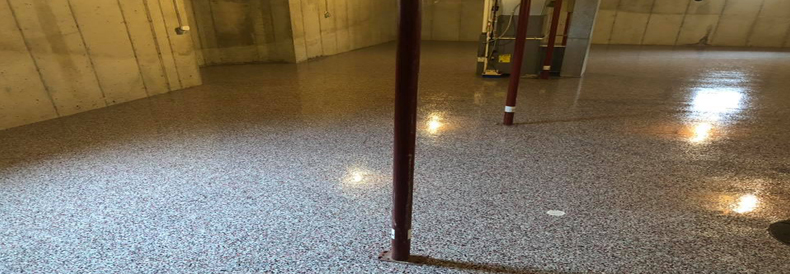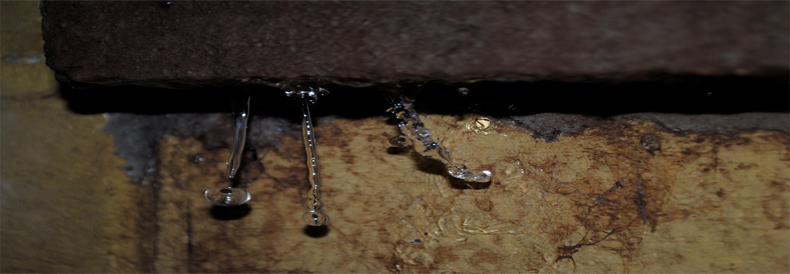Why Wintertime May
Cause Your Basement To Leak And How To Stop It

Did you know that over 78% of basements across America are affected by water leakage or that 98% of basements have seen water damage in some form? With Winter right around the corner, now is the perfect time to start thinking about the leaks that are in your basement or if you need to protect your basement from developing leaks. Water will always take the path of least resistance and that is most commonly cracks in the basement’s concrete. So today, we are going to be talking about how winter can cause leaks and what you can do to stop them.
What Causes Leaks?

When it comes to why basements are prone to leaks in the Winter, there are dozens of variables that can make your basement prone to expensive water damage. Down below, we have outlined some of the most common reasons why your basement can leak during the winter:
Cracks In The Basement Walls And Floor
The biggest reason why leaks occur in the basement is pre-existing cracks in the concrete foundation and the walls. Water will always take the path of least resistance and when the pressure from melting snow or the surrounding soils push that water down, it is very common for the water to seep in through the cracks of the basement. Cracks are one of the most common forms of imperfection in the basement through the settling of the home, age and concrete tends to crack. Water will continue to seep into the basement until cracks are filled and repaired or if the pressure is relieved.
Snow Accumulation
As we have talked about up above, snow during the winter will be your biggest enemy during the winter. It turns into a battle between keeping your basement warm and the chance of water damage. What most homeowners don’t know is that heat radiating from your basement can leak into the surrounding soil by up to 8 inches, warming up the soil and causing snow to melt. This will make water leak down towards your basement, resulting in pressure on the surrounding walls, causing problems for both the outside of your basement and the interior of your basement.
Improper Foundation Slope
It shouldn’t matter what type of soil your home was built on, it is always supposed to be sloping away from your home to maximize the drainage of water runoff in the winter. The recommended slope of soil around your home is 6 inches. While 6 inches doesn’t seem like much, it is more than enough to guide water away from the foundation of your home, eliminating the chance that water from runoff from your home ends up in your basement.
How To Stop These Effects
While the most efficient way to get your basement out of harm’s way from winters cold and wet grasp is a full basement remodel and waterproofing service, we know that not all homeowners have the time or the budget to do it all at one time. So we have found that the best way to start protecting your basement is by updating its flooring system. When it comes to bang for your buck, we have found that basement epoxy is the best option for leaky, water prone basements for the simple fact that epoxy is 100% waterproof.
With a waterproof basement flooring system, water that does find its way in through the walls won’t cause major damage and you won’t have to worry about water coming through the concrete. Epoxy requires that all cracks be repaired before installation, creating a watertight seal for your basement flooring. Thanks to advancements that have been made in the epoxy industry, some additives can be used to give the epoxy’s surface texture, it can be safe to walk on when wet or soiled.
With a waterproof basement flooring system, water that does find its way in through the walls won’t cause major damage and you won’t have to worry about water coming through the concrete. Epoxy requires that all cracks be repaired before installation, creating a watertight seal for your basement flooring. Thanks to advancements that have been made in the epoxy industry, some additives can be used to give the epoxy’s surface texture, it can be safe to walk on when wet or soiled.
Well now that you know what the major problems that are leading water to your basement, it’s time to take care of them before winter strikes. We hope that you have found this article useful in identifying your basement woes but now, we wish you the best of luck in all of your basement renovations to come!
